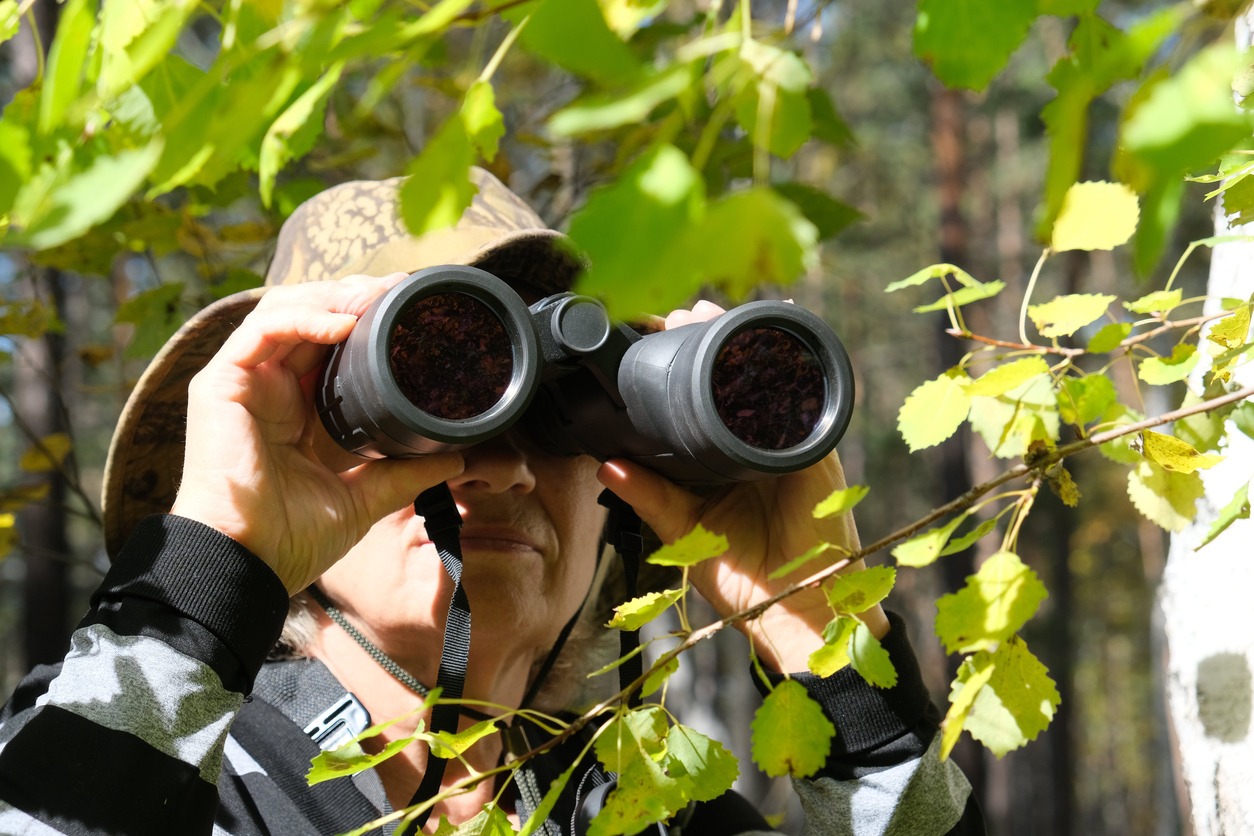It is essentially a recreational activity in which birds are observed.
This is the most basic description of bird watching or listening to birds. Still, most birders will go a step further by recording their observations, identifying the species they see and sharing their discoveries with other bird lovers.
Birding’s meaning is integrally linked to admiration and a sense of awe for avian species, regardless of bird watchers’ activities. This is something that all bird watchers, from beginners to experts, have in common.
Bird Watching Details
| Category: Nature, Outdoors, Social, Traveling | Time: 1-2 hrs | Skill: Little |
| Initial Cost: $$ (51-100) | Space: little | People: alone, small |
| Long-Term Cost: Low | Makes Money: No | Location: outdoor |
History of Bird Watching
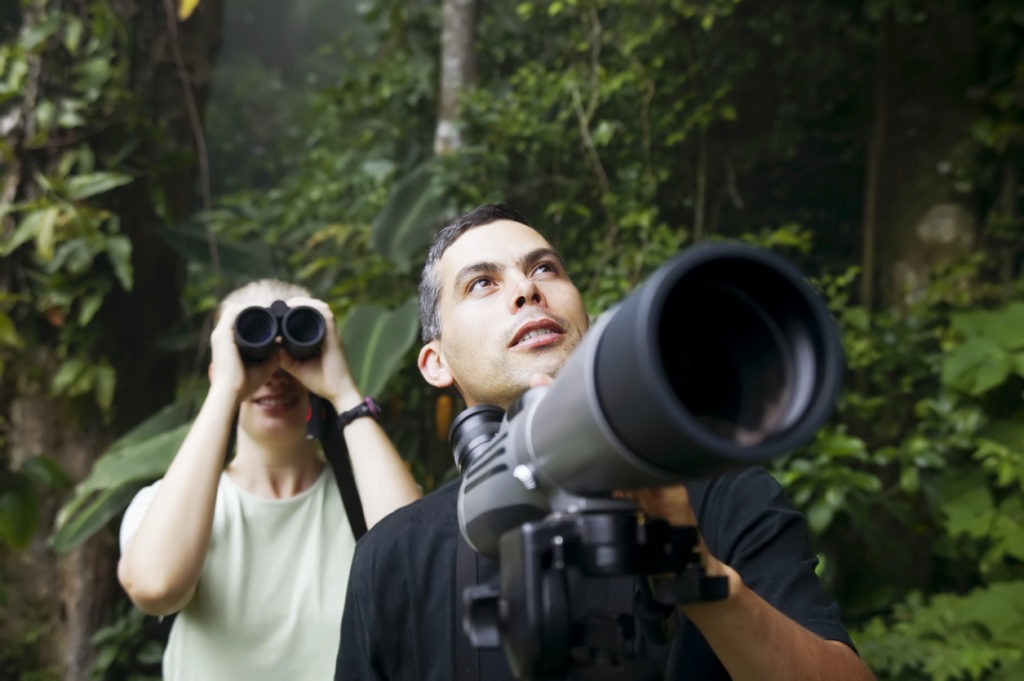
Most people observed birds for hunting as a sport, primarily for food, in the mid-1700s, and subsequently Gilbert White, Thomas Bewick, George Montagu, and John Clare. Are the individuals who first documented the birds as an ecologist for the goal of study and research. Subsequently, during the Victoria era between 1837 and 1901, they gathered birds’ feathers and later conserved their feathers, and they began to collect around the globe where they were colonizing. Only in the late nineteenth century did the desire for bird conservation increase the popularity of live bird observations. The Audubon Society was founded in the United States to protect birds from the growing feather trade. In contrast, the Royal Society for the Protection of Birds was founded in the United Kingdom. Birding in North America was centered on the eastern seaboard region in the early and mid-20th century and was influenced by the works of Ludlow Griscom and later Roger Tory Peterson. Neighboring Birds
How to start up this hobby
Birding is one of those pastimes that connect you to nature. Bird watching and research are both instructive and illuminating, and it truly helps you understand what is going on in your local ecology.
Some individuals, though, find it intimidating. They believe that to call oneself a birder genuinely, you must have vast ornithological knowledge or become some extreme naturalist to be any good at the sport.
You would imagine that being a true birder entails donning a pith helmet and khaki shorts and wading waist-deep in some ancient swamp in quest of a rare species. Or that you need to build a blind in the woods and live in it for weeks while waiting for a rare bird to arrive, eating nothing but granola bars and bark.
Some birders go through the motions but without the pith helmet. You do not have to, though. Birders come in many shapes and sizes and from a variety of backgrounds. Some people take their pastime quite seriously and spend many hours each week in the field. Others prefer to watch birds from their patios, porches, or kitchen windows.
Materials and Tools
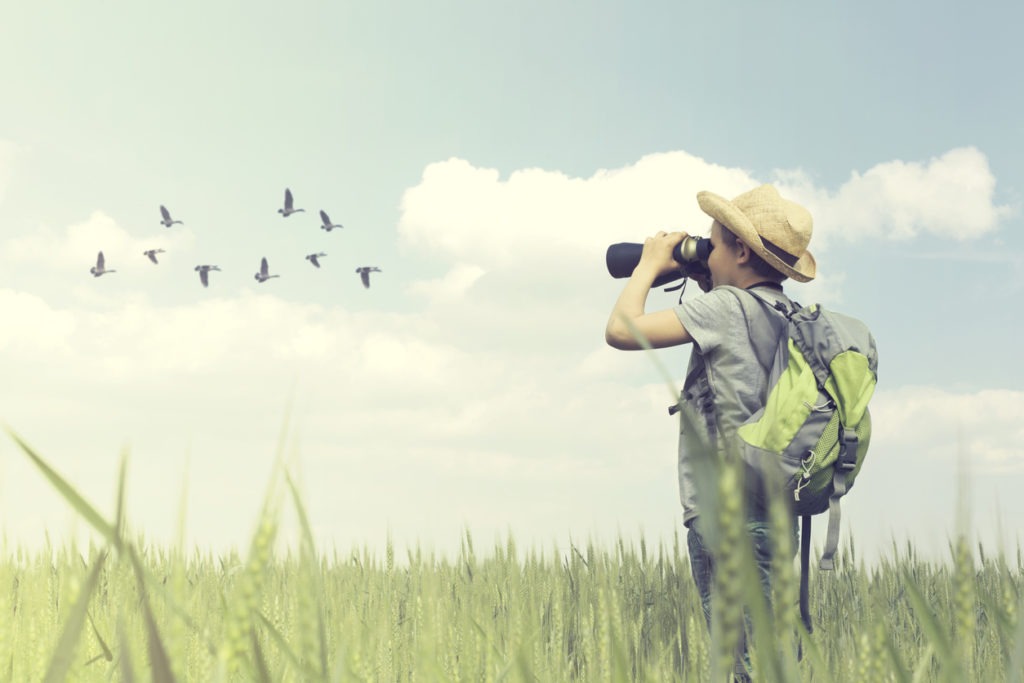
Bird-watching is a calming and pleasurable activity for many nature enthusiasts worldwide. Bird-watching may be done with just your eyes, but having the right equipment can dramatically enhance your experience.
Binoculars
Binoculars are maybe the essential piece of equipment for any birder. A magnificent bird sitting high in a tree would appear little more than a speck in the distance if you did not have binoculars. It is critical to invest in a good set of binoculars with magnification capability to avoid such aggravation.
A Field Manual
Observing beautiful birds in their natural habitat is enjoyable in and of itself, but knowing how to recognize the various species may enhance your experience. You will be able to categorize birds based on the drawings and descriptions in a field guide if you bring one with you. Just remember to pack a bird-watching guide specific to the location you will be visiting.
Pencil and notebook
You are a bird watcher; you might wish to keep a journal of your observations. Keep a notebook to help you remember what birds looked like, what sounds they made, and other vital data to identify them when you return from your birding trip.
Scope for spotting
Binoculars can help you see birds in your immediate neighborhood, but if you want to see a bird that is well off in the distance, you will almost certainly need the help of a spotting scope. Spotting scopes are also excellent for obtaining a closer look at birds so that you can recognize them better.
Camera
Many birders love taking their cameras along on their bird-watching trips. Taking a few photographs of the birds will help you identify them later. Furthermore, you will undoubtedly have some great images due to the birds’ creative and elegant character.
Tips for Birdwatching

Everyone may see a bird. Step outdoors and have a look around. You should be able to view birds no matter where you are. Bird watchers have devised various ways to discover and observe more birds than if they went outside and looked around. Here are some birdwatching tips.
- Wearing brightly colored clothing is not recommended. Natural or darker colors, such as camouflage, grey, or black, are ideal.
- Get a pair of binoculars that are not too heavy. It is best to go for a lens with a large field of view. The field of view is the amount of space available for viewing subjects from a single point on the camera. The more open the vista, the more the birds may be seen.
- Avoid abrupt, quick movements. They scare the birds, causing them to take flight. Swing your binoculars slowly if possible. It would be best if you were quieter as you get closer to a bird.
- Early in the morning is the best time to go. The dawn attracts most birds because it heats insects and supplies them with prey. As a result, your chances of seeing a broad range of birds are better at this time.
- Invest in a bird guide. Bird guides are compact pamphlets that include information about birds in a particular area, including their noises, dietary preferences, and migratory times. While birding, having a guide is a great way to expand your knowledge.
- Take a notepad with you. Please make a list of the birds you saw and their sounds. This information aids in precise identification.
- Patience is essential when it comes to bird viewing. Wait patiently for the birds to arrive since spectacular flocks only arrive at the proper time and in the right conditions. Every steady stride in the direction of birdwatching will be a memorable experience.
Benefits of Taking Up Bird Watching
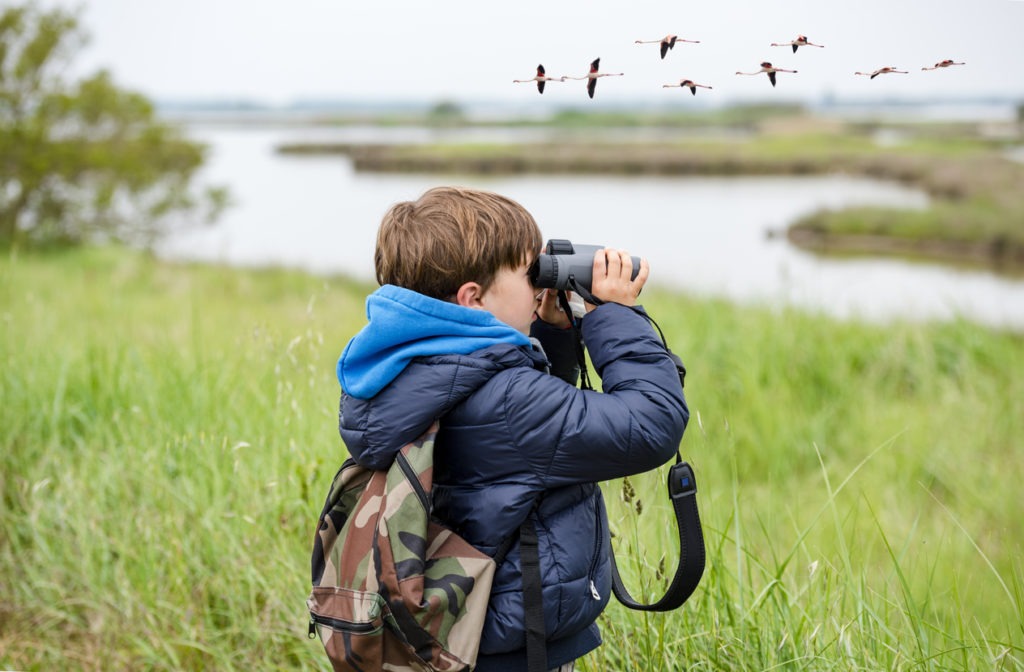
Bird watching is a weekly activity that will take you out into the countryside. This will undoubtedly assist both you and your body. We discussed how bird watching might benefit your mental and physical health in our guide to activities for older adults.
1. Positive Thoughts Are Sent to You
Going for a walk in the woods is a terrific way to unwind and let your worries drift away. You can clear your mind and revitalize yourself by being outside in nature. It is excellent for diverting your attention away from issues regarding work or home.
Being outside is a fantastic method to combat any anxiety or despair you might be experiencing. It is also essential to take things gently when actively looking for birds. Maintain a calm breathing pattern while moving softly.
2. Boost your reflexes and mental acuity.
You want to see the birds you are looking for; you will have to be top of your game. You must be prepared to grab your camera, go to the proper location, and shoot the shot. Furthermore, you must do it without creating too much noise or frightening the bird.
Bird watchers need their minds to work on various levels to pick up on any signs that a bird may be around. Your reactions will grow quicker with time, demonstrating that this activity has a favorable impact on your brain and reflexes.
3. It allows you to get plenty of exercises
It is critical for older adults to obtain enough exercise and participate in as many activities as physically feasible, as we outlined in our sports and fitness piece. Bird watching is a hobby that might help you achieve your goal.
You will be walking several kilometers on your visits to find the precise bird you seek. You may need to trek or cycle in the highlands to acquire the right shot, ascending over steep terrain.
4. There are new skills to learn in bird watching.
You will explore and learn new talents as you seek birds worldwide. The most important aspect of bird watching is obtaining excellent images of the many species. You will have to study and utilize professional equipment to get the perfect photo. Mastering photography is a terrific ability to have and can be applied daily.
As a result, you could elect to learn how to upload and edit your photos on your computer or tablet device, which is a new skill in and of itself.
5. You will Have the Opportunity to Travel
There are many beautiful and unique bird species on the globe. As a result, taking up bird watching as a hobby will lead you on many adventures. Your passion for the pastime may lead you to exotic areas throughout the world, where you may take in the sights and turn your trip into a vacation.
You could create a bucket list linked to your bird-watching intentions. Maintaining an active and pleasant lifestyle in your later years is crucial. Having the opportunity to travel to cities worldwide is a definite method.
Cost of Bird Watching
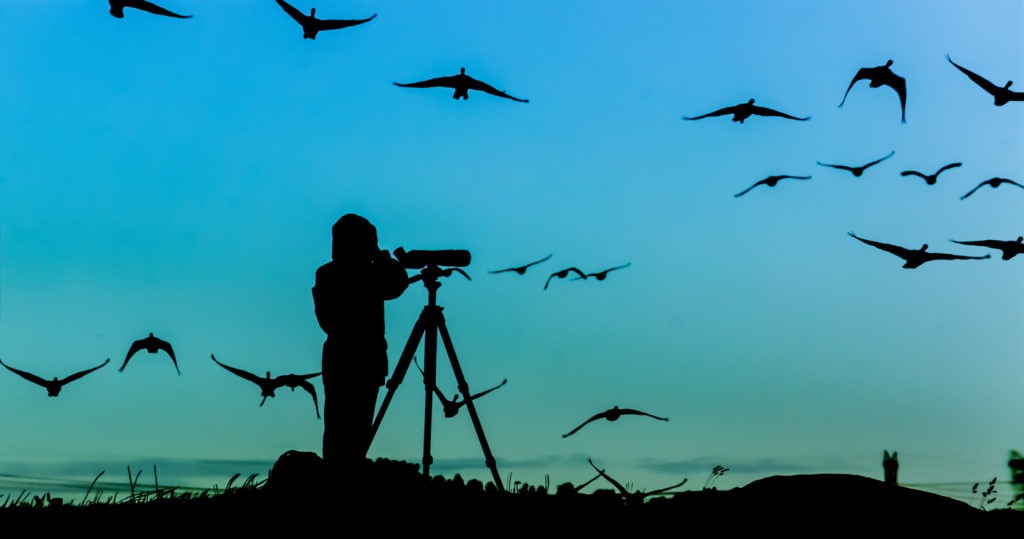
Binoculars and airfare are the two most expensive aspects of bird viewing.
To start bird watching, you need a pair of binoculars. An excellent first pair of shoes should cost between $75 and $100. Look for secondhand binoculars on the internet. Get an 842 binocular, and do not skimp on the price, or you will be disappointed. The Nikon Prostaff, Vanguard Spirit, and Celestron Outland X are excellent choices.
Conclusion
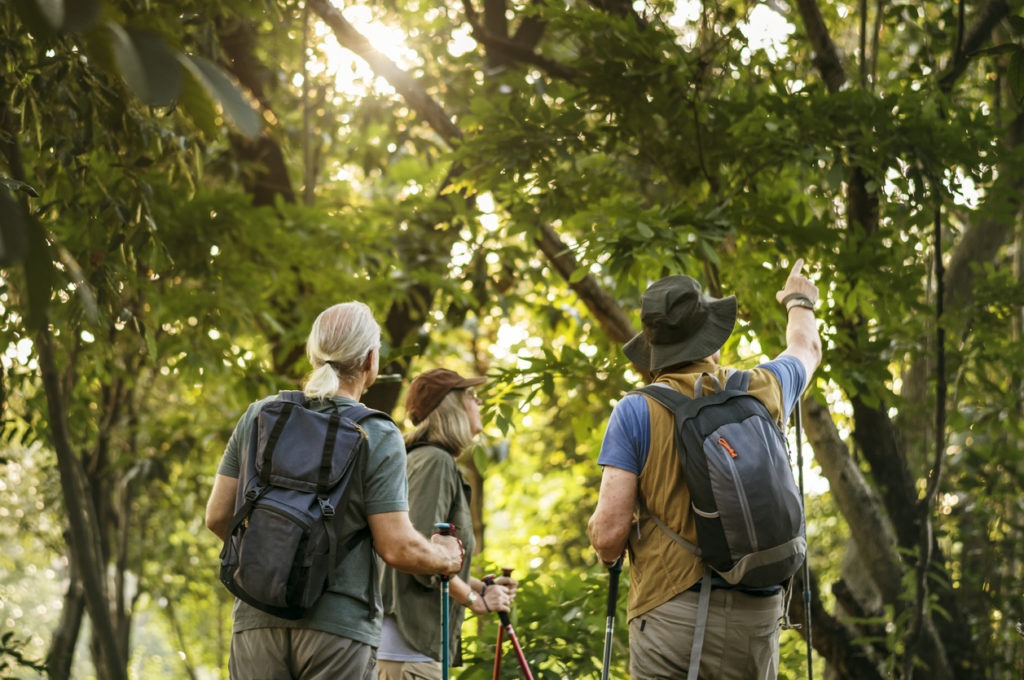
When you become a dedicated bird watcher, you’ll want to view birds that you won’t see in your backyard. You’ll want to travel after you’ve arrived at this stage. Traveling allows you to see areas all around the globe that you may not otherwise see. If you can’t visit these locations, you can still appreciate their beauty through literature and your garden!
